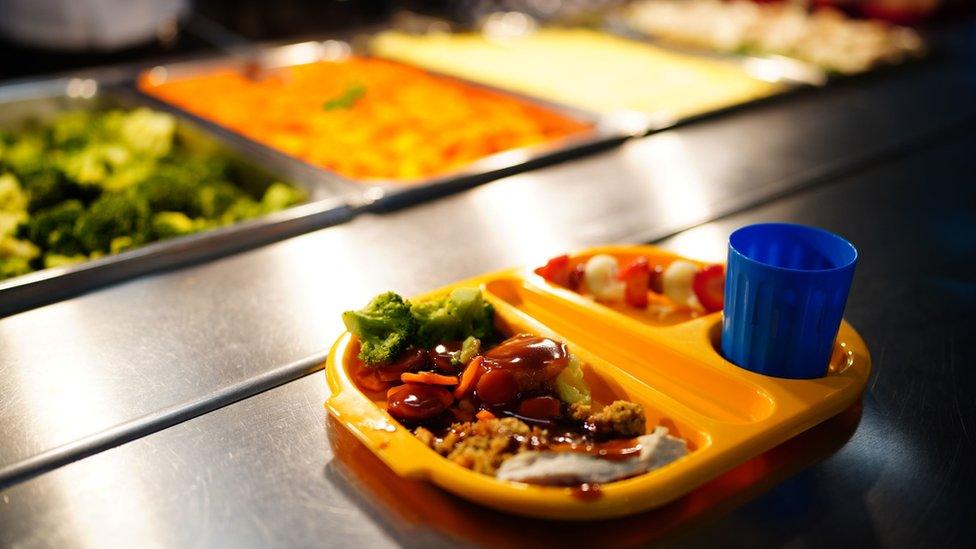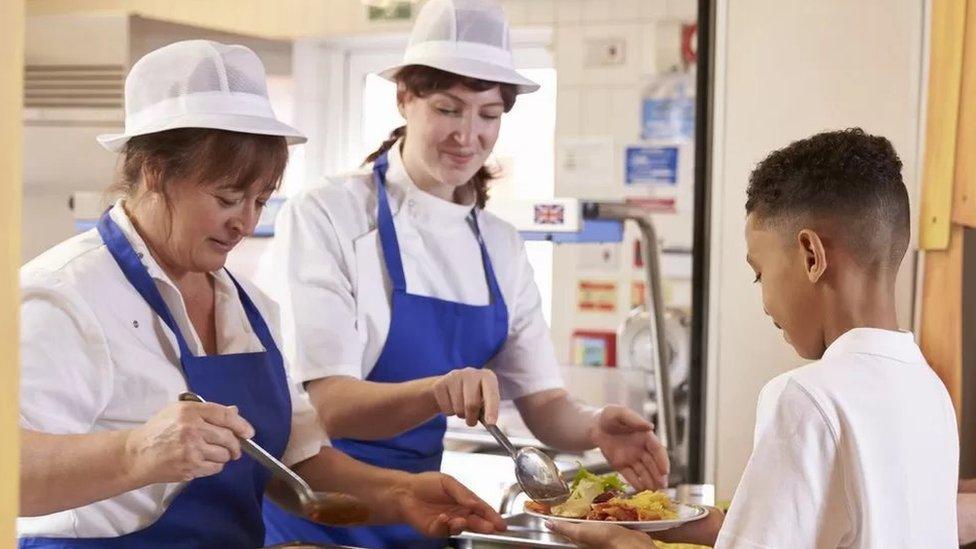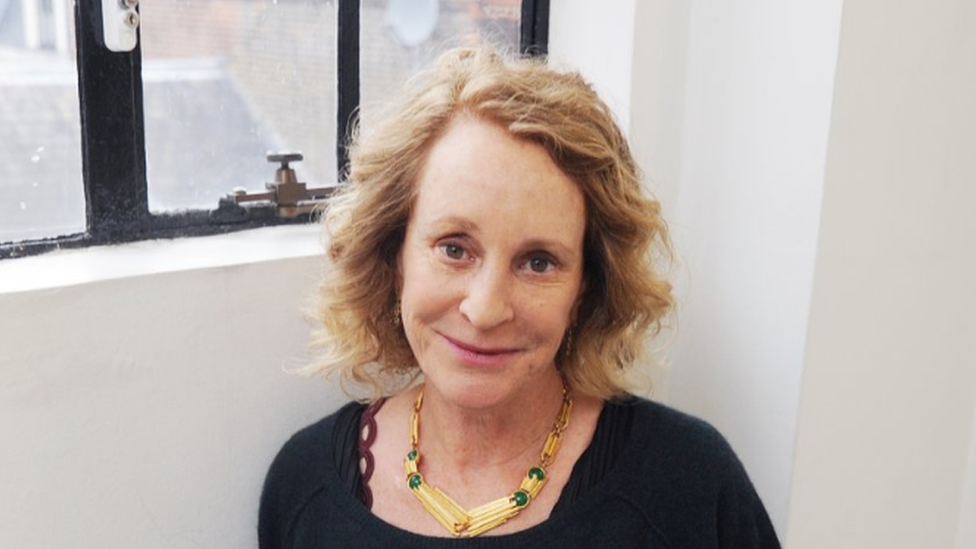Free school meals rules mean 100,000 kids go hungry in north west England
- Published

Pupils in reception, year one and year two are guaranteed a free school meal
Eligibility rules on free school meals need an overhaul as 100,000 of children in poverty in north west England do not qualify, research has suggested.
The report, external by the Child Poverty Action Group (CPAG) and Greater Manchester Poverty Action (GMPA), said changes were needed to tackle classroom hunger.
It found 20,000 children under Lancashire County Council who are poor were unable to claim free school meals.
The government said it had extended eligibility to free school meals.
Children in England are guaranteed a free school meal in reception, year 1 and year 2.
Year 3 to year 6 pupils from households in receipt of eligible benefits, external are also entitled to free lunches under existing government rules.
But the report found the qualifying criteria was so restrictive every local authority in the north west of England had at least 1,500 school-age children in poverty who were not eligible for free school meals.
The CPAG and GMPA are urging local leaders to do what they can to ensure more children get a free lunch but said the responsibility ultimately lay with the government to expand provision of free school meals to tackle classroom hunger.
'Wake-up call'
It said the threshold has not changed since 2018, despite increasing inflation adding the figures highlighted the "stark inadequacy" of the current system with the number of school-age children who are poor but ineligible for free lunches ranging from 1,500 in Halton to 15,000 in Lancashire.
Kate Anstey, of the CPAG, said the numbers should act as a "wake-up call" adding "means-testing children at lunchtime should be a thing of the past".
"Children in every corner of the north west are sitting in classrooms too hungry to concentrate and learn because they don't qualify for a free school meal," she said.
"Too many children are being let down by the government's cruel free school meals cut-off threshold.
"The government must bring in universal free school meals to ensure every child has the food they need and struggling families get breathing space from high costs."
'Protections in place'
Graham Whitham, of GMPA, said: "Low-income families are under immense financial pressure at the moment and introducing universal free school meals would mean they have that bit extra to spend on other bills and household essentials.
"It would also improve their children's nutrition, ultimately helping them to learn, engage and thrive."
The report said England lags behind other UK nations as universal provision is being rolled out across primary schools in Scotland and Wales.
In Northern Ireland the eligibility threshold is considerably higher than in England.
Emergency funding provided by the Mayor of London Sadiq Khan also means all state primary school children in the city will receive free school meals until the end of the 2024-25 academic school year.
A Department for Education spokesman said: "We understand the pressures many households are under, which is why we have extended eligibility for free school meals to more groups of children than any other government over the past half a century - doubling the number of children receiving free school meals since 2010 from one sixth to one third.
"We have also put protections in place to ensure that children who are eligible for free school meal retain that entitlement even if their household circumstances change."

Why not follow BBC North West on Facebook, external, X, external and Instagram, external? You can also send story ideas to northwest.newsonline@bbc.co.uk
Related topics
- Published9 January 2024

- Published16 January 2024

- Published15 January 2021
